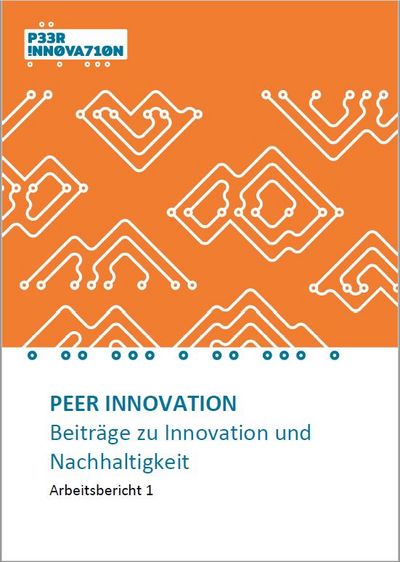Peer Innovation – Contributions to innovation and sustainability Working report 1
In view of the major challenges facing society, the report assumes that innovation policy should be more clearly aligned with the goal of a socio-ecological transformation. This requires the participation of different actors in the innovation process. With the expanded definition of the term innovation, the OECD has created the conditions for also taking activities in the household sector into account when measuring innovation. The first working report in the project "PeerInnovation" focuses on the cooperation of private individuals in peer communities and provides an analytical framework for the empirical investigation of this phenomenon. Peer innovation is defined as a specific form of innovation in the household sector characterized by openness, self-motivation and collaboration among private individuals. Therein lies the transformative potential of this innovation mode. The composition of those involved in the innovation process and their motivations open up new spaces of possibility for innovative solutions. These go hand in hand with alternative goal orientations that can contribute to overcoming path dependencies. The report describes this potential and takes stock of empirical studies on the frequency and relevance of innovations in the household sector. It shows why there is an urgent need to develop appropriate methods for measuring peer innovation. This is the focus of the research project.



